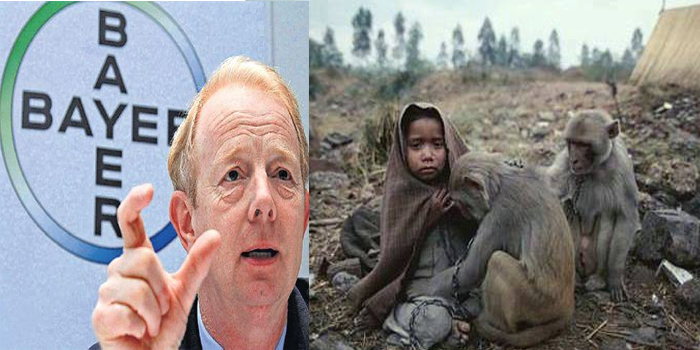“We did not develop cancer drug Nexavar for Indians” said Bayer’s CEO Marijn Dekkers, we made it for “western patients who can afford it”…
In 2005, the FDA granted approval for a promising new cancer-fighting drug called Nexavar. Bayer took it to market shortly thereafter, and it is currently an approved treatment for late-stage kidney and liver cancer.
That is, so long as you live in the developed world. During a panel at a Financial Times conference last month, Bayer CEO Marijn Dekkers appeared to suggest that his company’s life-saving drug isn’t for poor people. The comment was first reported by Bloomberg Businessweek:
“Is this going to have a big effect on our business model? No, because we did not develop this product for the Indian market, let’s be honest. We developed this product for Western patients who can afford this product, quite honestly. It is an expensive product, being an oncology product.”
The comment was in response to a decision by an Indian patent court that granted a compulsory license to a local company to reproduce Bayer’s drug. Under Indian patent laws, if a product is not available locally at a reasonable cost, other companies may apply for licenses to reproduce those products at a more affordable price. Nexavar costs an estimated $69,000 for a full year of treatment in India, 41 times the country’s annual per capita income.
In 2012, Indian pharmaceutical company Natco Pharma Ltd. applied for just such a license, and it was granted. The company began reproducing the drug at a 97 percent discount, offering it for just $177. Bayer has been appealing the ruling ever since, and in December Dekkers told Businessweek that he viewed the compulsory license as “essentially theft” before dismissing poor Indian cancer patients.
Pharmaceutical companies have long been accused of ignoring the plight of those who cannot afford their astronomical prices. In the United States, where insurance companies often pick up most of the tab, consumers are often shielded from the true cost of drugs they are prescribed (Nexavar, for example, costs as much as $96,000 in the United States, but Bayer ensures that eligible US patients only see a $100 copay).
Dekkers’ quote brings into sharp relief the industry’s general ambivalence towards the developing world. A 2012 report from Doctors Without Borders found that most pharmaceutical companies devote only a small fraction of their operating budgets to fighting diseases that disproportionally affect — and kill — millions of the world’s poorest people.































